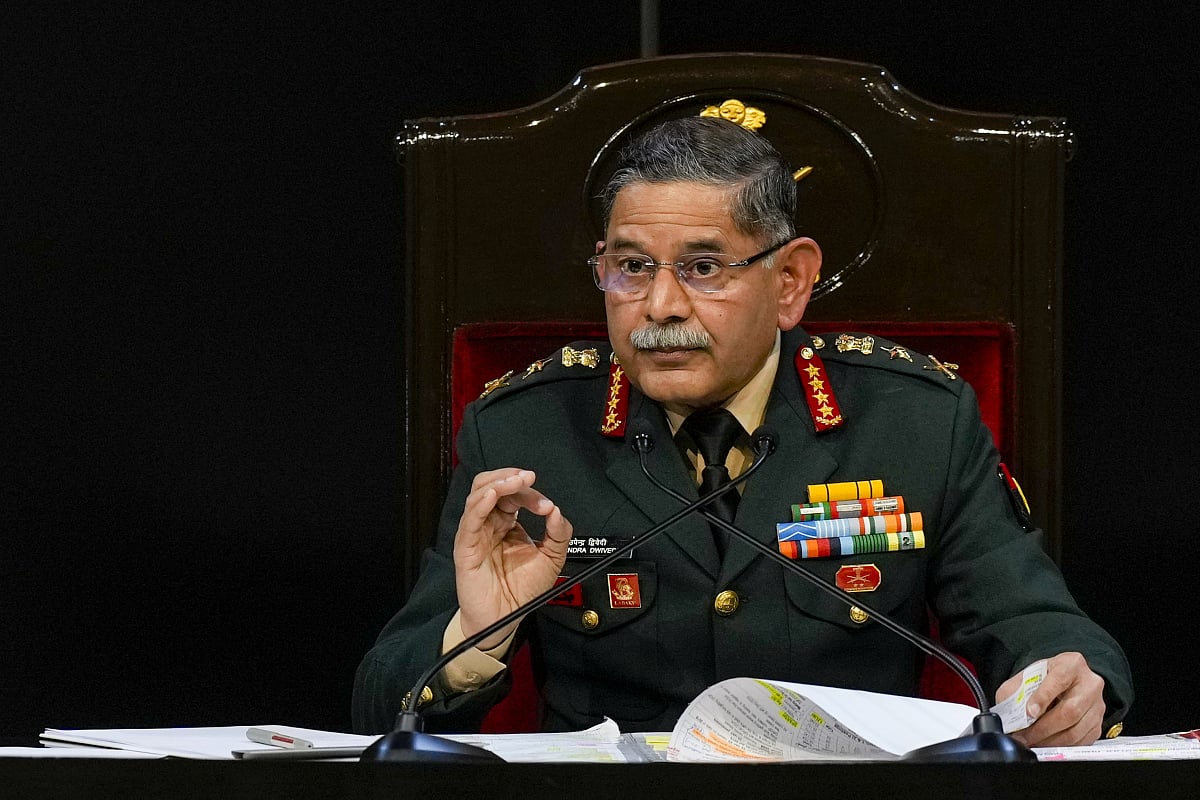 |
|
The Indian Army chief, General Upendra Dwivedi, has unequivocally declared Pakistan the epicenter of terrorism, asserting that a staggering 80% of terrorists operating in Jammu and Kashmir (J&K) are of Pakistani origin. This statement, delivered during his annual Army Day press conference, underscores the gravity of the situation and highlights the ongoing cross-border conflict that continues to destabilize the region. The general's assessment is not merely a rhetorical statement; it's backed by operational data and the substantial deployment of Indian troops to counter this threat. The assertion that Pakistan orchestrates the violence in J&K directly challenges Pakistan's official stance and points towards a sustained campaign of cross-border terrorism, actively undermining peace and stability in the region.
General Dwivedi's claim is buttressed by the relatively high voter turnout (approximately 60%) in both parliamentary and assembly elections in J&K. He interprets this as a sign that the local population is increasingly embracing peace and rejecting violence, indicating that the ongoing conflict is largely driven by external forces, primarily Pakistan. This interpretation, however, is subject to debate. While high voter turnout can be indicative of a desire for peace and participation in the democratic process, it does not necessarily negate the presence of underlying tensions or the complex socio-political dynamics at play within J&K. The participation of the local population in the electoral process might be influenced by various factors beyond a simple rejection of violence, including security measures, political maneuvering, and the complexities of the Kashmir conflict itself.
The Indian Army's response to the perceived threat has been substantial. General Dwivedi revealed that 15,000 additional troops were deployed in 2024, resulting in a noticeable decrease in violence and the neutralization of 73 terrorists, 60% of whom were identified as Pakistanis. This significant military intervention highlights the scale of the security challenge and the Indian government's commitment to combating terrorism. However, the efficacy of military solutions in addressing the root causes of the conflict remains a subject of ongoing discussion. While military action may successfully neutralize terrorists and reduce immediate violence, a comprehensive approach that addresses the underlying political and socio-economic factors contributing to the conflict is often considered crucial for long-term stability and lasting peace.
The statement by the Indian Army chief has significant geopolitical implications. It further strains relations between India and Pakistan, escalating the existing tensions between the two nuclear-armed neighbors. The accusations of state-sponsored terrorism by Pakistan are likely to be met with strong denials and counter-accusations, exacerbating the already volatile situation. International observers and mediators may need to play a more active role in de-escalating tensions and facilitating dialogue between the two nations to prevent further escalation of the conflict. The ongoing conflict has profound humanitarian consequences, affecting the lives of countless civilians in the region. Addressing the root causes of the conflict, including the political status of J&K, is crucial to bringing about lasting peace and stability in the region.
The deployment of 15,000 additional troops and the neutralization of 73 terrorists are significant achievements in the ongoing counter-terrorism operations. However, the success of these efforts should be evaluated in the broader context of the overall conflict. The issue is not simply about neutralizing individual terrorists; it's about addressing the networks and support systems that enable their activities. Without a comprehensive approach that involves not only military action but also diplomatic efforts, economic development, and addressing the underlying political grievances, the conflict is likely to persist. Sustained and comprehensive counter-terrorism measures are essential, alongside a willingness from all parties involved to engage in meaningful dialogue and find lasting solutions to the deep-rooted issues that fuel the conflict in the region.
